
|
|
Advice to Teen Girls:
Create a Positive Digital Fooprint
ShinyDoor...
By Angela Siefer, founder
Thu, 2011-11-17
Photos of Edison event by Bob Robinson. Break Out sessions covering various fields followed Angela's presentation.
On November 18, 2011 I was the keynote at We Are IT!, a STEM event for
young women held at the Edison Community College in Piqua, OH. Over 200
teenage girls and their teachers attended this event to help girls
explore science, technology, engineering and math careers. I was asked
to speak on Internet safety.
I used Prezi as my presentation software rather than traditional
slides. It is below. It doesn’t make much sense without the verbal
overlay but the summary below should help.
A summary of my presentation:
The Internet is a mess. It’s chaotic. But it’s a fabulous kind of
chaos. Some people like the chaos and are able to find their way
around. Others find it frustrating. You may know people like this. In
fact, you are probably the tech support for these folks. Some of your
parents may be these folks. The Internet scares them so they may
restrict your usage of it. Understandably so. They want to keep you
safe. I’m one of the people who think the Internet is awesome; that out
of the chaos comes fabulous. I love my gadgets. I love my apps. But I
am also a parent to 3 children, 2 of whom are teenagers. I want to keep
them safe but I also want them to experience the awesomeness that is
the Internet.
Not only do I think the Internet is fabulous, I think Facebook has
great value. As do other online social networks. Twitter. LinkedIn.
MySpace. Oh wait, Myspace? Well, I’m not sure that one has value. You
may think it does. We can discuss during lunch. :-) A few stats for
you: 65% of social media-using teens say they personally have had an
experience on a social network site that made them feel good about
themselves. 58% say they felt closer to another person because of an
experience on a social network site. 80% of teens who’ve witnessed mean
and cruel behavior have come to the defense of a targeted social
networking friend. (Commons Sense Media.)
I expect those are all values that make sense to you all. What it
really comes down to is relationships. This may sound crazy but there
are researchers whose job it is to research why you spend time online,
particularly on social networks. What they determined is that you want
to feel close to others. Turns out that’s why adults spend time online
also. We, all of us, want to feel close to others and we use social
networks as a tool.
So, if we spend time online because we want to feel closer to others
then how do we let our emotions run straight through our fingers
without intercepting them before they do damage? You all know what I’m
talking about. We get upset, the emotion takes over and all of a sudden
we have typed something we never would have said straight to the face
of a friend. This is the digital world we live in. It comes with
responsibilities. The fabulousness that is the Internet and social
networks has its challenges and we, all of us - kids and adults, must
learn how to live in this digital world. A big challenge with online
interaction is that it is often difficult to understand intent. Adding
a smily face to a sarcastic joke doesn’t necessarily remove the sting.
One of the things we teach at ShinyDoor is professional use of social
networks. We do so because for many of us our professional lives and
our personal lives interact. I have customers who are friends and
cousins who are sub-contractors. I can’t separate out my work life from
my personal life. Think about how you use social networks. Are you
Facebooks friends with family members? Are connected to family members
or adults on other social networks? Do you limit what they see? What
are the positives and negatives of limiting what they see?
Best example I can give you of how I use Facebook both socially and
professionally is how I ended up speaking today. A few years ago I
taught I seminar on professional use of social networks at a conference
for community colleges. Because I use social networks professionally,
meaning I do connect to colleagues, I’ve stayed in touch with one of
the people in that seminar. I post now and then about work stuff to
Facebook so she knew what I had been up to and she recommended me to
speak here today. She contacted me via Facebook asking if I would be
interested. That is not unusual for me. I HAVE to keep up with
Facebook. I never know when a current or new customber might contact me
through Facebook. Does that sound crazy to you? I HAVE to use Facebook
for work.
It is also thanks to Facebook that this presentation is not in
tradtional boring slides. I posted in Facebook that I was trying Prezi
and a customer/friend offered to help. Thank goodness! You all almost
ended up with those boring slides!
Are you connected to any parents of friends on a social network? Aunts?
Uncles? You don’t need to answer but give some thought as to who is
likey to give you a job when you need one. Who is likely to recommend
you for a job? Will they know you better if they keep up with you on a
social network?
45% of companies use social sites to screen potential hires.
(TheAtlantic.com) And this number will only go up. Your digital
footprint is what one finds about you online. This is what companies
are seeing when they do a search of someone. Its the trail you have
left. Its data. The trail may have been created by you in real life or
created by you online. The digital world we live in means that what we
do offline can end up online. For some of us, this digital
footprint is becoming pretty intense. Having a strong POSITIVE digital
footprint can be a good thing. THAT is what I want for you.
We live in a digital world.You know this better than any generation
before you. Content can be easily forwarded and passed around.
When I hear of schools setting up virtual iron gates in an attempt to
keep their kids safe I get very frustrated. Here’s the lesson I wish
they were teaching rather than spending time setting up their gates.
Content is mobile. This means you need to really check to find out
where it originated from. “Because the Internet said so” is a joke
punch line. Honestly. If anyone every says that to you, laugh because
it is not a credible statement. The other thing I want you to consider
regarding this content is that it can go wherever. Why? Because these
days content is mobile.
If you do search for “Facebook Fairy” you find a picture of Kevin in a
fairy costume. Kevin told his boss he had a family emergency. He then
went to a costume party. Someone forwarded this picture to his boss.
Kevin lost his job. Keep in mind Kevin did not take this picture. It
doesn’t matter what Kevin’s Facebook privacy settings are. Content is
mobile. This is the digital world we live in. Kevin is now known as the
Facebook Fairy. Really. Google search Facebook Fairy. And he’s a dude!
I don’t know which is worse. That he lost his job or he is known as the
Facebook Fairy!
Here is the flip side - you can put so much positive content about
yourself online that when people search your name, they’ll find all the
good stuff! My colleague Danielle probably doesn’t call it creating a
positive digital footprint but if you google her, you find her creative
blog where she writes about issues important to her, her awesome
creative resume and links to her slide presentations which include a
Twitter drawing of her. So creative.
Why do certain sites show up when you serach for a name? Lets quickly
talk about how search works. Google uses algorithms to determine what
shows up in a search. Their algorithms are secret and change over time
but the basics are that the more popular and relevant a website to a
search, the more likely that pages within that site are to come up in a
search. When you search for my name the first 7 or sites to come up are
sites where I have created the content. This is important because this
shows I am creating my own digital footprint. I am not waiting for the
trail to be created as I go through life.
Now that you know what is THE INTERNET, does it seem so chaotic? That’s
the challenge. One has to spend a good deal of time on or rather IN the
Internet to feel comfortable. And knowledable. The more we know about
how the Internet works the more we can use it to benefit ourselves, our
communities.
Read this and other information at ShinyDoor
|
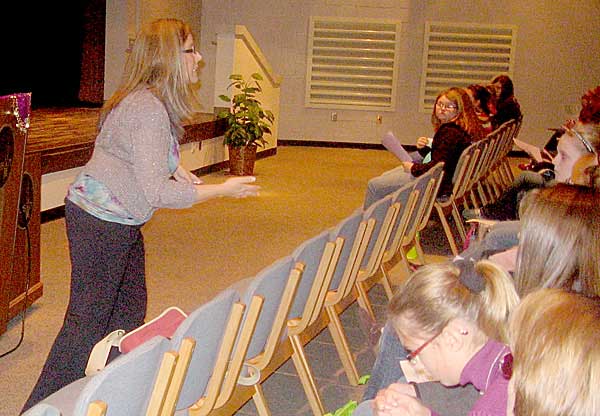
|
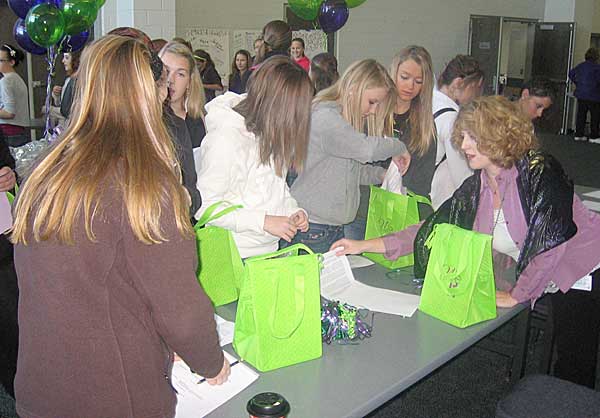
|
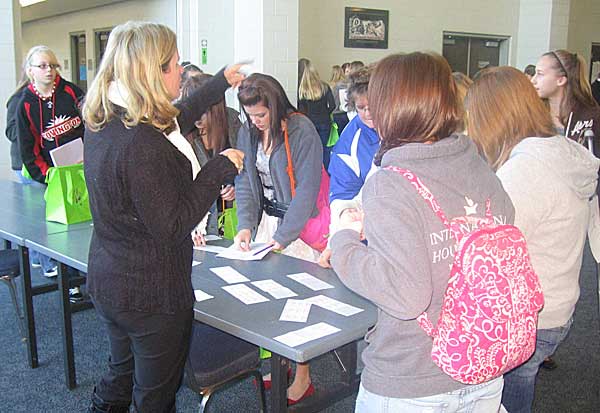
|
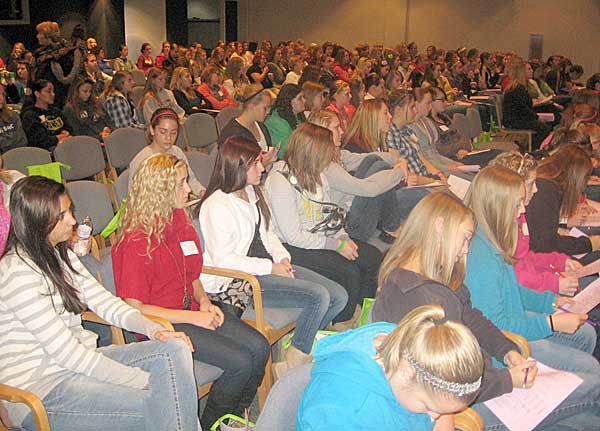
|
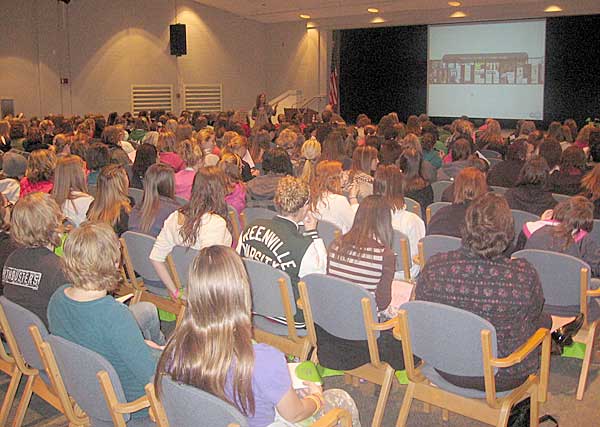
|
|
|
|

